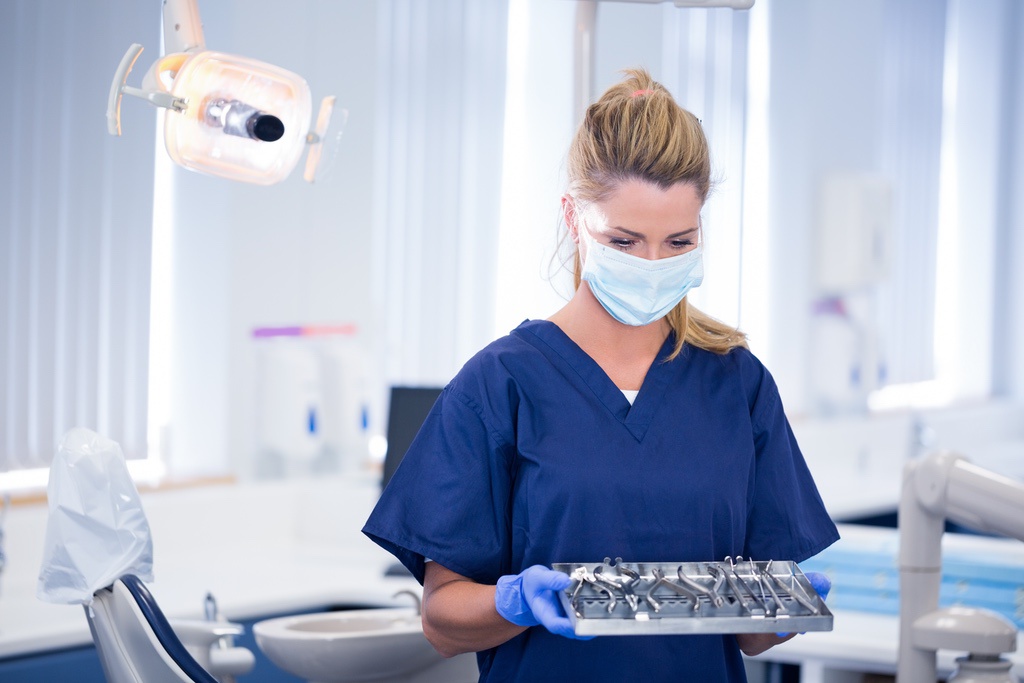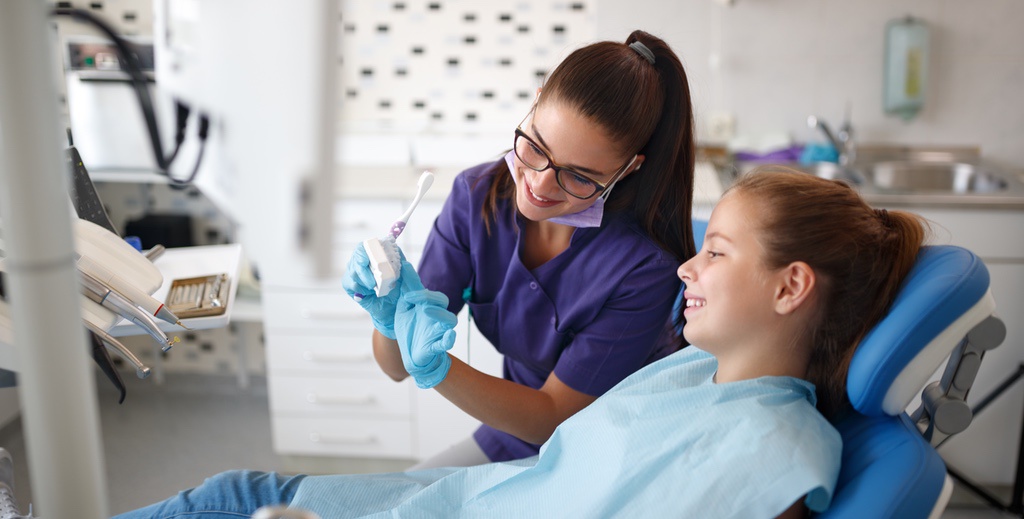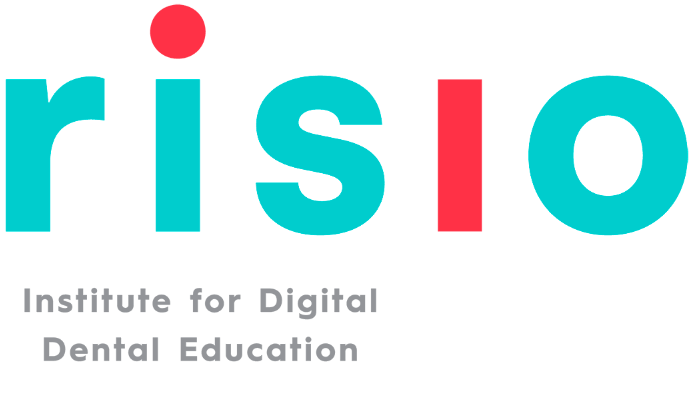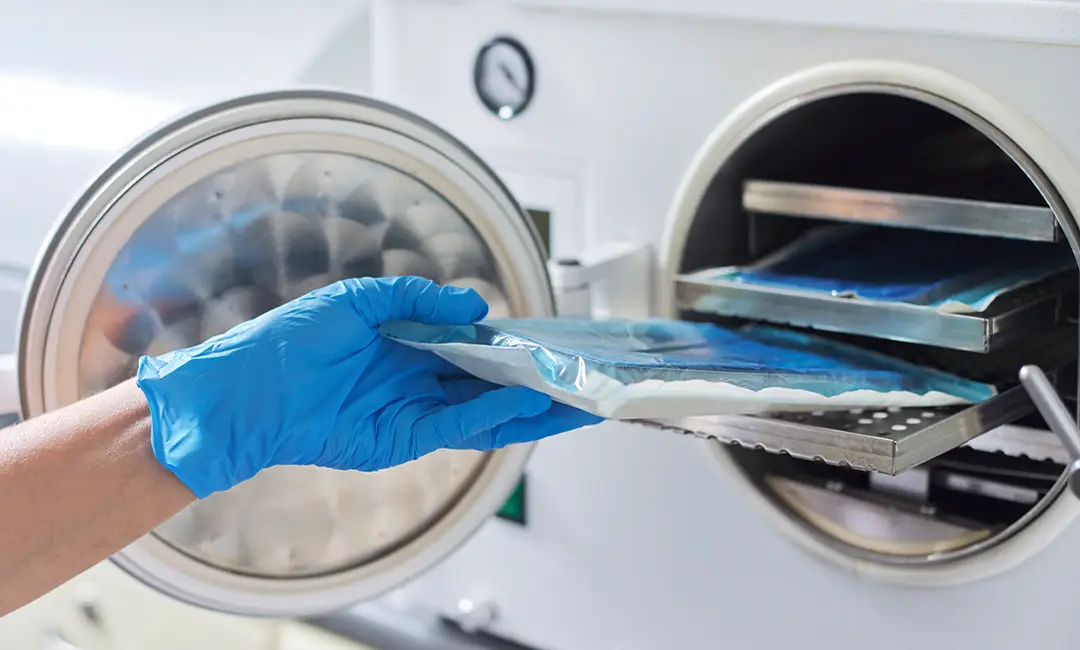Summary of Key Points
- Dental practices are busy places with many practical tasks that need to be performed consistently to keep them efficient. As a dental assistant, you’ll be responsible for taking care of many of these duties.
- Along with other responsibilities, dental assistants must prepare treatment areas before appointments, sterilize any necessary instruments, assist dentists with various procedures, educate patients, take impressions, manage records, and provide post-operative care.
- Successful dental assistants must have strong communication and organizational skills, as well as the ability to work with a variety of equipment (such as the autoclave machine for sterilizing instruments). Risio’s Dental Assistant Distance Diploma Program provides an opportunity to learn these skills and practice them in a safe environment under the guidance of experienced professionals.
Dental practices are dynamic workplaces with many small tasks that need to happen on a more or less constant basis to keep everything running smoothly. As a dental assistant, you’ll be responsible for carrying out or helping with many of these activities, but what are they—and what will you need to be prepared for them?
Let the Risio team help. Our Dental Assistant Distance Diploma Program is designed to help prepare dental assistants for all of the duties they’ll be expected to perform in the professional world, so we know all about the practical tasks involved in dental assisting and the skills required for them. Join us for a primer in the practical tasks you’ll need to prepare for below.

Preparing Treatment Areas
- Dental assistants prepare treatment areas by ensuring they are clean, organized, and stocked with necessary supplies. This process includes:
- Making sure the room is clean and organized, and that all equipment is functioning.
- Restocking necessary supplies, such as gloves, masks, and gowns, and ensuring that they are within easy reach.
- Preparing the dental chair by adjusting it to the appropriate height and ensuring that it is clean and free from debris.
- Laying out sterilized instrument packages for the upcoming procedure.
- Setting up the tray table and covering it with a plastic cover to prevent cross-contamination.
As a dental assistant, you’ll also welcome the patient to the exam room, making sure they are comfortable and properly positioned for their appointment.
Sterilizing Instruments
One of the most important practical tasks you’ll perform as a dental assistant is ensuring all dental instruments are properly sterilized before and after use to prevent the spread of infection. This involves using an autoclave machine, which uses high pressure and high temperature steam to sterilize objects.
To do this, you’ll place the instruments into sterilization pouches and then into the autoclave before sealing the chamber. The autoclave will then heat the water in the chamber to create steam and increase the pressure, which effectively kills bacteria, viruses, and other microorganisms. Learning how to use an autoclave properly is an important skill for dental assistants, which is why it’s part of the training Risio offers.

Assisting with Procedures
Dental assistants are responsible for assisting with many dental procedures. Your responsibilities might include:
- Passing instruments to the dentist
- Taking X-rays
- Taking impressions and bite registrations
- Applying and removing rubber dams
- Applying cavity bases and liners
- Polishing teeth and applying fluoride
- Applying sealants and desensitizers
With additional training like the kind we provide at Risio, dental assistants can also perform more advanced tasks like removing sutures, working with crowns and restorations.

Educating Patients
One thing you’ll need to do regularly as a dental assistant is educate patients on proper oral hygiene. Information you’ll need to cover might include:
- Proper brushing and flossing techniques
- The importance of regular dental check-ups
- Essential information about different dental procedures
- The details of each patient’s individual treatment plan
To master this, you’ll need to be a practical, straightforward, and friendly communicator. Learn more about the people skills dental assistants need.
Taking Impressions
Dental assistants often take impressions of patients’ teeth to help the dentist create custom dental appliances, such as crowns, bridges, and dentures. This might involve:
- Mixing dental materials
- Placing the materials in impression trays
- Carefully positioning the tray in the patient’s mouth
Taking accurate dental impressions consistently takes practice. This is another reason why formal training to become a dental assistant is so valuable.
Managing Records
Dental practices are responsible for a huge amount of patient information—including appointment details, financial data, contact info, and more. As a dental assistant, you’ll need to be able to manage patient records (including medical histories), update treatment plans, and document your dentist’s notes.
You may also need to manage appointment schedules for your practice, reminding patients of upcoming appointments and rescheduling as needed. Strong organizational skills are vital for succeeding at this part of the job.
Providing Post-Operative Care
Post-operative care isn’t an “extra”—it’s an incredibly important part of every patient’s experience, and one that you’ll need to take an active role in as a dental assistant. The information you provide to patients after their appointments helps them maintain good oral health and hygiene after their appointments, and ensures that they know what further tasks or visits to the practice are required. You might need to:
- Recommend pain relief medication as per the dentist
- Advise the patient on what foods to eat or avoid
- Help schedule any necessary follow-up appointments
- Provide post-operative care kits with items like gauze pads or a saline rinse

Practical Preparation for Success As a Dental Assistant
The tasks listed above represent just a few of the practical responsibilities you’ll have as a dental assistant, and they require specific abilities you’ll need to develop through extensive practice. To build up the knowledge, communication skills, and organizational capabilities you’ll need in a safe environment with guidance from experienced professionals, reach out to Risio and learn more about how applying for our program can set you up for success.

